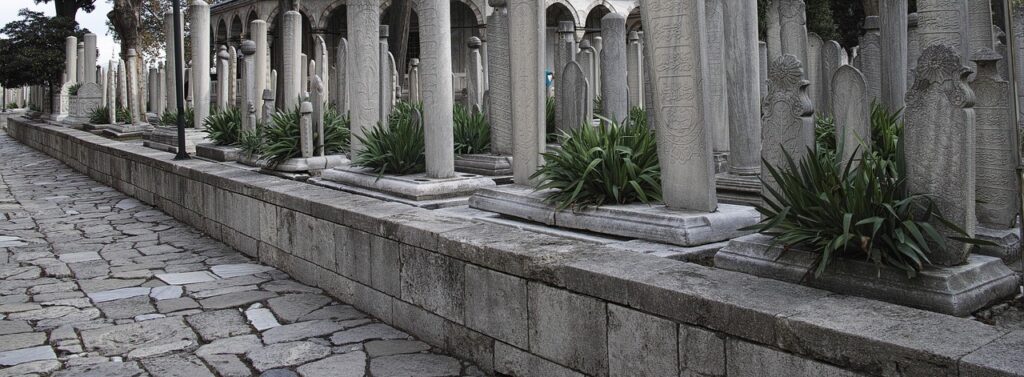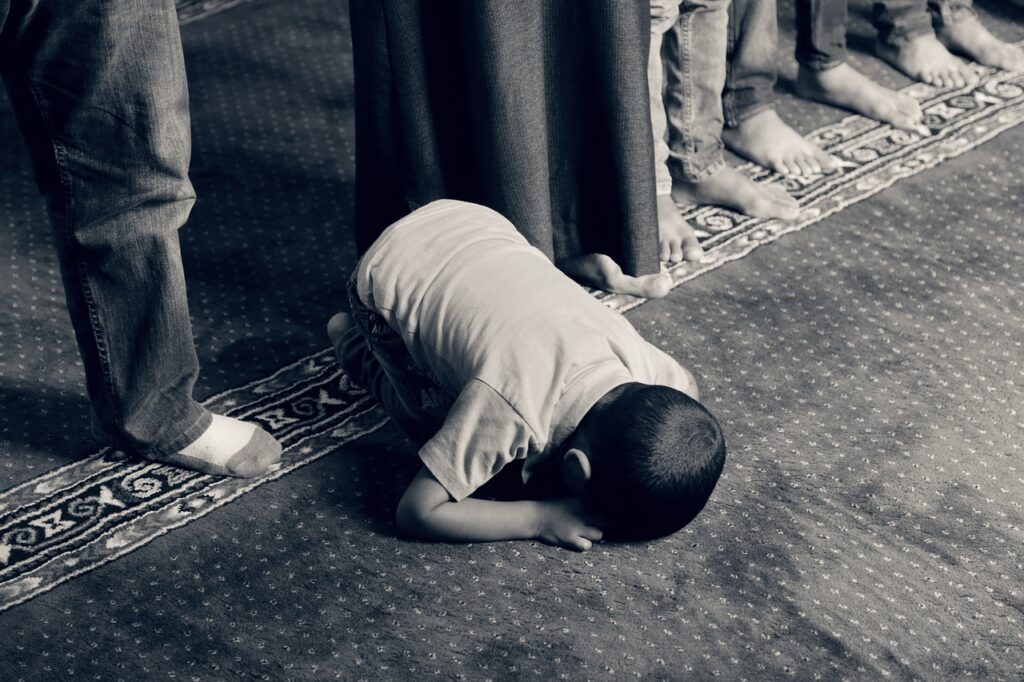Prayers for Marriage: Seeking a Righteous Spouse in Islam

Prayers for Marriage: Seeking a Righteous Spouse in Islam The act of supplication, known as “du’a” in Arabic, is a foundational spiritual practice in Islam, providing believers with a direct channel of communication to Allah, the Almighty. When it comes to seeking a life partner and formulating a prayer for marriage, it carries significant importance. […]
Invocation – Dua for the Deceased in Islam

Invocation – Dua for the Deceased in Islam In Islam, the invocation, or “du’a” in Arabic, is a cherished act of communication between believers and Allah, the Almighty. One pivotal moment to make such invocations is upon the passing of a loved one. The prayer for the deceased is laden with mercy and blessings, aiming […]
Invocations – Dua Against Anxiety and Fear in Islam – Islamic Duas

Invocations – Dua Against Anxiety and Fear in Islam – Islamic Duas In Islam, invocations hold a special significance in alleviating anxiety and fear. When faced with challenges and negative emotions, Muslim believers turn to specific Arabic invocations to find inner peace with Allah’s help, for invocations are addressed to the Creator of everything. In […]
Invocations – Dua for Pious Offspring

Invocations – Dua for Pious Offspring: Seeking Divine Blessings in Islam Invocation for Having Pious Children In Islam, the pursuit of pious offspring is a deeply rooted desire in the hearts of many believers. Pious children are seen as a great blessing from Allah. Therefore, believers are encouraged to seek divine grace and invoke Allah […]
Traveler’s Dua – Invocation in Islam

Traveler’s Dua – Invocation in Islam Traveling has always been a significant part of human life, whether for work, leisure, or religious purposes. In Islam, traveling is not just a mundane act but also a spiritual opportunity. This article delves into the Traveler’s Dua (supplications), its significance, how to recite it correctly, and additional resources […]
Dua Against Poverty: Powerful Islamic Invocations

Powerful Islamic Invocations – Dua : Safeguarding Against Poverty with Quranic Teachings In Islam, seeking protection from poverty and financial distress is a significant concern for many believers. The teachings of Prophet Muhammad (peace and blessings be upon him) offer invaluable insights into seeking divine grace and invoking Allah for safeguarding against poverty. In this […]
Dua for Protection from Negative Influences

Powerful Islamic Supplications – Dua for Protection from Negative Influences Islam offers spiritual solace to believers facing life’s challenges, including difficult interactions with others. Supplications play a vital role in safeguarding against negative energies and the malice of people. Explore key Islamic invocations, supported by authentic Hadiths of Prophet Muhammad (peace and blessings be upon […]
The Islamic Invocation – Dua for Job Seeking

The Islamic Invocation – Dua for Job Seeking: A Comprehensive Guide In the challenging journey of job hunting, uncertainties often arise. However, within Islam, believers are guided to seek the divine assistance and guidance of Allah, the Almighty, in their pursuit of employment. The act of invoking Allah for job opportunities is not just ritualistic […]

